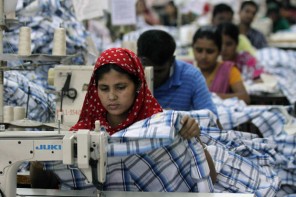Written by: Jessica Solomons
Last year the Sustainability Institute of Stellenbosch celebrated its 10th birthday. After one decade this centre has made huge strides in creating a space forsustainable living and learning here at home in South Africa and with more projects underway, the future looks bright for thisgreen haven.
Professor Mark Swilling is co-founder of the Sustainability Institute and largely responsible for its success and the creation of the now thriving Lynedoch Ecovillage, the goal of which is to act as a working example of an ecologically designed urban system with a focus on education and learning. While the village is currently home to a Montessori crèche, a government funded primary school of 400 children, 42 plots, of which there are now 14 houses built, and a number of successful youth programmes, this impressive community was not, Mark admits, the goal from the beginning.
“We initially started out as a place of learning at Spier where we offered short courses on sustainability as well as several leadership courses but over time we transformed into what we are now,” he says. “We were committed to the Lynedoch Primary School which back then was located on a nearby farm but when the school was threatened with eviction we stepped in and helped by locating them on what has now become the Lynedoch Ecovillage. When we had the school set up we began brainstorming ways to make the area viable which is how the idea of an Ecovillage came about.”
While one of the goals of this socially mixed community of Lynedoch is to use resources in a more sustainable way and be a practical and working example of an ecologically designed urban system, you don’t have to be a green activist to live there. “We don’t expect everyone to agree on every aspect of Lynedoch,” says Mark, a Lynedoch resident himself. “Trying to get people to agree on sustainability or community is where some eco-villages have run into difficulty. Here in Lynedoch there are people who are interested in the community aspect, while others are more focused on the sustainability aspect,” he says. “And then there are those who simply like the beautiful gardens or are just looking to buy property.”
Whatever the reason for people wanting to join the community, Lynedoch is fast becoming one of South Africa’s more successful Eco-villages and with this continued success it’s no surprise that Mark and his colleagues are setting their sights on projects abroad. “We have many partnerships at different levels,” says Mark. “As a learning centre we have a lot of links with academic institutions around the world who do research on sustainability and the global economy and we also have partnerships with organisations that share our educational mission, such as the Schumacher College in the UK.”
But the Sustainability Institute, as the success of Lynedoch has proven, is not solely about academics. One of the more hands on projects which Mark is currently involved with is the establishment of sustainable cities worldwide. “There is a network of researchers around the world who are interested in finding ways to make cities more sustainable,” he says. “There are a lot of countries involved from India and China to Europe and Latin America and we expect to have the first draft out by November.” Closer to home Mark and the team have also been working with the Gauteng government on writing and implementing a green economy strategy for the province and developing plans to establish a solar power plant in the Stellenbosch area.
With so many projects currently on the go and more and more people from here and abroad getting involved with the Lynedoch Ecovillage through its various initiatives such as Sustainable Stellenbosch, we have no doubt that Mark and his team will continue to succeed in their efforts to better our world and create a sustainable future for us all.
The liveeco team







